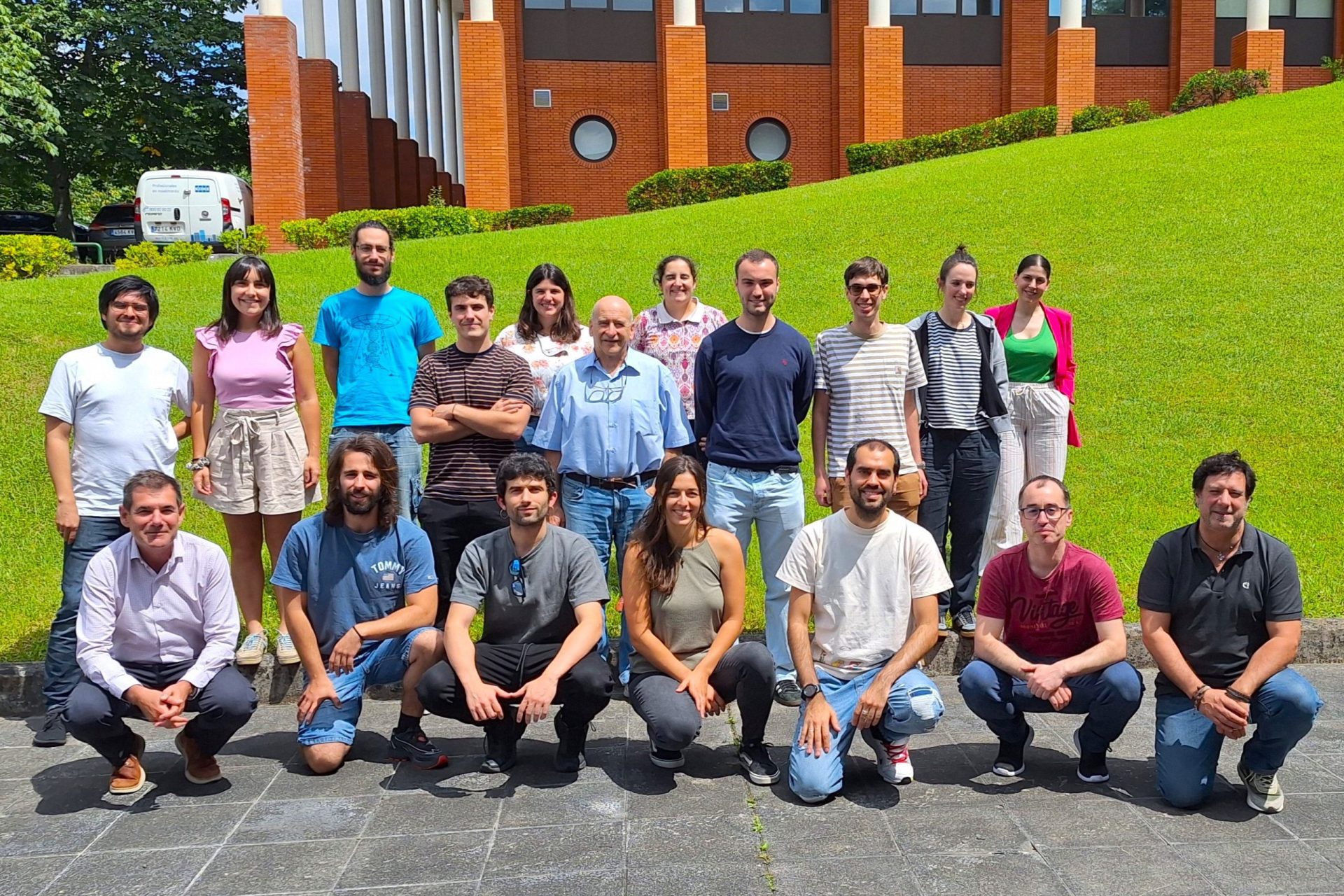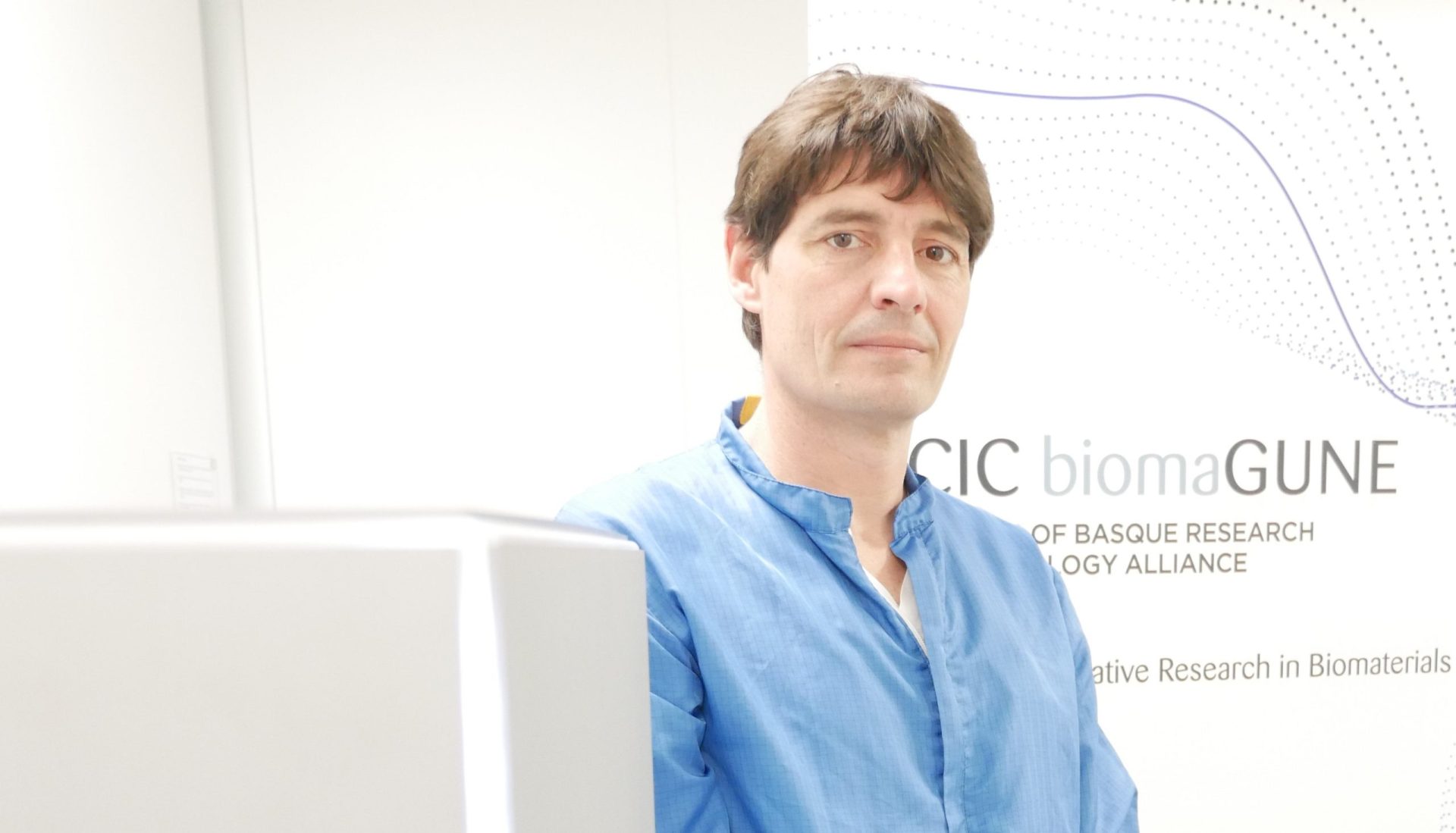CIC bioGUNE researchers advance in the fight against neurodegenerative diseases with an innovative method for the creation of new infectious prions

Prion diseases, such as Creutzfeldt-Jakob disease or Fatal Familial Insomnia in humans, and mad cow disease in animals, arise from the mysterious transformation of cellular prion proteins.
The new method, published in the prestigious journal Nature Communications, will improve understanding of the underlying mechanisms of the devastating and currently incurable prion diseases Creutzfeldt-Jakob disease and Fatal Familial Insomnia in humans.
An international collaborative study, led by researchers from CIC bioGUNE – a BRTA member – and CIBERINFEC, has reached a crucial milestone in the fight against prion diseases by developing a revolutionary technology that allows the spontaneous generation of hundreds of new infectious prions.
The novel method, published in the scientific journal Nature Communications, improves the understanding of the underlying mechanisms of prion diseases, such as Creutzfeldt-Jakob disease or Fatal Familial Insomnia in humans, which are devastating and currently incurable diseases.
Prion diseases, such as Creutzfeldt-Jakob disease or Fatal Familial Insomnia in humans, and mad cow disease in animals, result from the aberrant conversion of the cellular prion protein (PrPC) into its pathogenic form (PrPSc or prion). However, the precise details of this conversion process remain largely unknown, limiting our ability to predict future outbreaks or possible cross-species transmission events.
The newly developed method, termed “Protein Malplexing Shake Amplification (PMSA)”, allows for the consistent and efficient generation of de novo prions in a test tube. The researchers applied this method to study more than 380 prion proteins from various mammals, allowing them to classify them according to their propensity to acquire the pathogenic form and their structural variability.
This represents a significant improvement over previous techniques, which showed greater variability and only applied to proteins from a few model species. The publication, in addition to providing valuable insights into the factors determining prion infectivity, demonstrated the ability of the method to generate prions from a wide variety of mammalian species. By inoculating these prions into highly susceptible animal models, the researchers confirmed their infectious nature, validating the authenticity of the prions generated in vitro and their utility as disease models.
The study provides a valuable tool for future research and clinical applications by creating a comprehensive database of prion protein variants, called “PrPdex”. This database shows the ability of each of these proteins to transform into an infectious prion, along with detailed information on their biophysical characteristics. This will help the scientific community to accelerate the development of new diagnostic techniques and targeted therapies for these diseases. Therefore, given its ability to unlock new insights into prion diseases and their impact on human and animal health, this study represents a significant step forward in the fight against these devastating neurodegenerative diseases.
This study has involved researchers from the Prion Research Laboratory, led by Ikerbasque Research Professor Joaquín Castilla, at CIC bioGUNE, in collaboration with researchers from Neiker, IRTA-CReSA, IIS Bioaraba, and Colorado State University. This advance will contribute to a better understanding of the underlying mechanisms of prion diseases, possibly having significant implications for the future diagnosis and treatment of these neurodegenerative diseases.
Translated with DeepL.com (free version)




